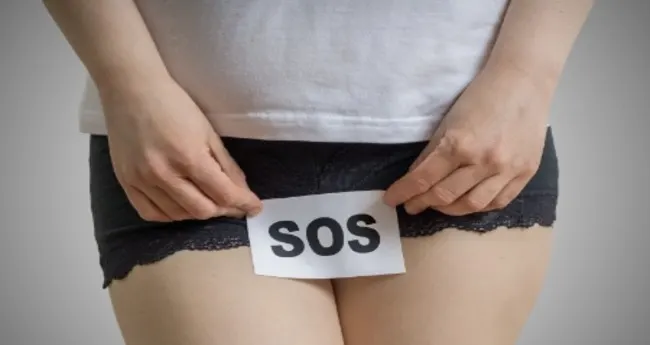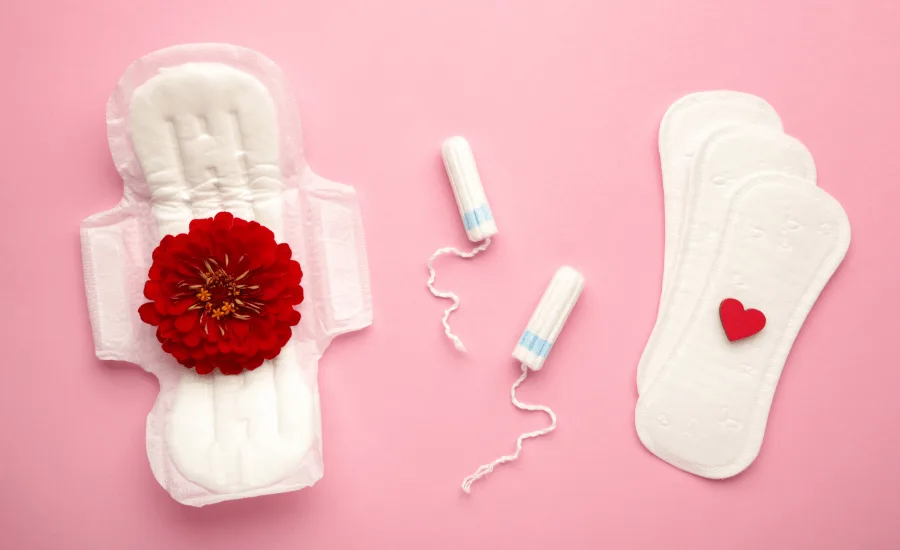Vaginal Boils: Should You Worry About Them?

Many women experience vaginal boils at some point in their lives. A vaginal boil is a painful bump that appears usually around the vulva or as a pus-filled boil on the vaginal lip. However, vaginal boils are not usually a reason to worry.
In most cases, they do heal on their own within a few days and all symptoms go away completely in a matter of weeks. Having said that, there are times where you will need to reach out to a doctor, especially if the symptoms persist or worsen over time.
What causes vaginal boils?
The most common cause behind a vulvar boil is a bacteria called staphylococcus or staph that lives on the skin. Now, you would ask why does bacteria that is naturally found on the skin cause such reactions? Well, the simple answer is that the bacteria only cause a problem when they enter a crack on the skin. And this rupture in the skin can be caused by one of the following reasons:
Hair removal
When we use techniques like waxing, shaving, etc, it may cause irritation and rashes which results into a bump and then a boil. In such cases, the usual culprit is an infected hair follicle which causes a condition called folliculitis.
External trauma
External trauma like cuts, bug bites, acne, and injury can cause an infection by creating a break in the skin letting the bacteria enter deeper layers.

Contact with infected skin
When you come in direct contact with infected skin, including intercourse, the chances of your getting vaginal boils increase. The infection can transmit from skin to skin and cause boils.
Being overweight
An overweight person can develop extra layers of skin which create pockets or creases where sweat and bacteria sit for prolonged periods of time. This gives the bacteria a chance to grow and create boils.
What are some common vulvar boil symptoms?
Some of the most common symptoms of a vaginal boil are:
- A painful swelling that hurts to the touch
- Redness or blueness on and around the area of the boil
- Puss-filled tip which is visible in some cases
- Rupture, releasing puss after a few days of the appearance of the boil
You will be able to feel a boil on the vaginal area before you are able to see it. If you feel like you are experiencing all these symptoms and are unable to see the boil, you can use a small hand mirror to spot it down there.
What are the home remedies for vaginal boils?
Although most vaginal boils go away on their own, anywhere around three days to a couple of weeks, you can also ease the symptoms by using some simple home remedies.
- Use a warm compress directly on the skin (avoid hot compresses)
- Hand-wash the region and change pads regularly during periods so that the bacteria get washed away
- Use antibacterial wash to ensure total removal of bacteria
- Avoid touching or pricking the boil as it might worsen the situation
- Take lukewarm baths of around twenty minutes to relieve pain
- Wear cotton underwear to stop the development of moisture down there

Additionally, while on periods, it is advised that you change your sanitary pads frequently and use absorbent pads and ALWAYS Cotton Soft Pads that offer a cushiony comfort all the while providing high absorption, allowing you to feel dry and comfortable for longer. The flexi wings on the pads also offer a firm grip, so that you can move about with ease.
For a tampon lover, ALWAYS Tampax Compak Tampons can be a great pick. These come in three different sizes, allowing you to choose one that provides optimal absorption and comfort. The innovative absorption channels lock in moisture quickly, protecting you against leakage and moisture build-up. In order to maintain hygiene, do make sure to change your sanitary pads and tampons on a regular basis.
How to prevent vaginal boils?
You can take several steps to ensure that vulvar boils do not appear around your private parts. Some of the most common things to do are:
- Wear cotton underwear and use pantyliners by Always to help manage the wet feeling down there; Always Multiform Protect Pantyliners offer excellent absorption and comfort. Their 1mm thinness and breathable design ensures that you feel dry and great, at all times.
- Keep the area clean and dry by tapping with a soft washcloth and use superior menstrual products
- Avoid shared towels, soaps, underwear, etc.
- Keep away from perfumed creams, soaps, etc.
- Changing shavers regularly if you use them
- Maintain a healthy weight so that boils do not appear on the folds of your skin
All the above are great ways to reduce the chances of getting a vaginal boil but it must also be noted that there is no sure shot method to avoid boils completely. Chances are, that you may develop boils on the vaginal area even after following all the above steps due to several other reasons.
When to see a doctor?
If your vaginal boil does not start to heal after three or more days, you might want to go see a doctor. If you’re wondering about the ‘healing’ part, you will be able to tell easily by knowing if the swelling has persisted or the redness has spread to more than two inches around the boil.
Another factor that you need to take care of is fever. Having a fever or other flu-like symptoms along with a boil means that the infection is progressing, and it is time to see a doctor. The doctor might then prescribe you medicine to ingest or remove puss using a sterile needle.
If the infection enters your bloodstream, it can infect other organs and have serious consequences. Therefore, it is advisable to consult with a doctor and not self-medicate.

Takeaway
Vaginal boils are caused by bacteria that already live on the skin. In most of the cases, these will go away or start getting better in a matter of days. In the rare cases that they don’t, you can always visit a doctor. The key takeaway is to avoid pricking or poking the boil as it may worsen the condition. Do make sure to reach out to your doctor if the boil does not start healing on its own after three days..
Stay well prepared for your next period by tracking it on Always Period Calculator.
Disclaimer:
Please note the date of the last review or update on all articles. No content on this site, regardless of date, should ever be used as a substitute for direct medical advice, diagnosis or treatment from your doctor or other qualified clinician. Always is committed to ensuring that all of our products meet rigorous safety standards; Always pads prioritize safety, protection and comfort of its consumers.




